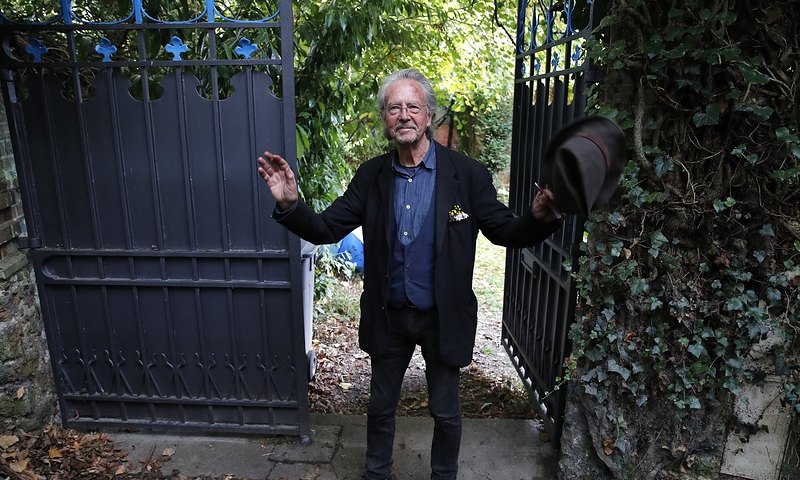As Sian Cain reports in The Guardian, this year’s Nobel prize in literature has been awarded to Austrain writer Peter Handke, known not only for his novels of “linguistic ingenuity” but also for being an apologist for the genocidal regime of Slobodan Milošević in the 1990s (Handke’s his maternal grandfather was Serbian). Asked to comment on Handke’s prize, British novelist Hari Kunzru called him “a fine writer, who combines great insight with shocking ethical blindness.” As Cain writes, the Nobel literature committee has been rocked by scandal recently, including charges of sexual harassment. This was the year they were supposed to leave controversy behind, but instead they stepped right in it. Check out an excerpt from the article below.
The decision to award Handke the 2019 laureateship – alongside Poland’s Olga Tokarczuk for the 2018 medal – was widely criticised by observers as a broken promise on two fronts.
First, the Swedish Academy’s apparent commitment to be less “male-oriented” and “Eurocentric” just days before had been quickly proven false, with two European winners and only the 15th female laureate in 120 years. Secondly, having declared that the prize would take a fallow year to reassess its direction after a now infamous sexual harassment scandal, the academy had left observers hopeful that the Nobel would stop eliding controversy with intellectual rigour, and choose authors that could be praised for both their work and their politics.
Image: Austrian writer Peter Handke, who was awarded the 2019 Nobel Prize in Literature.
